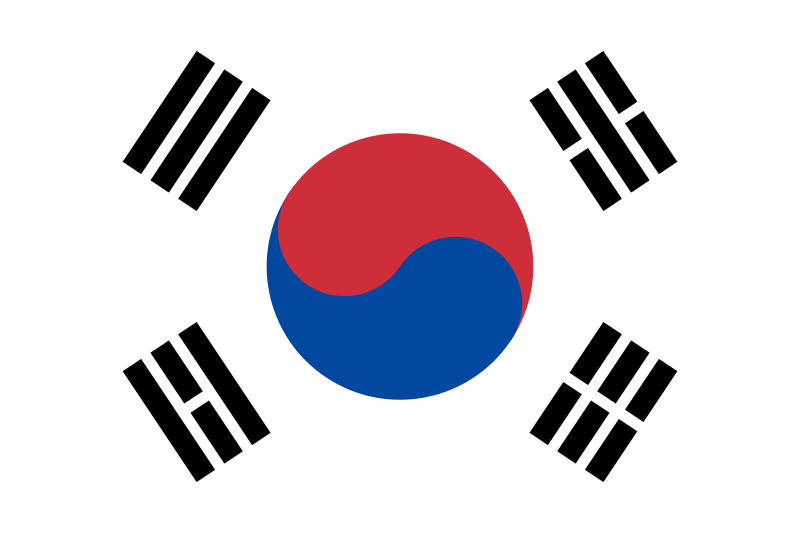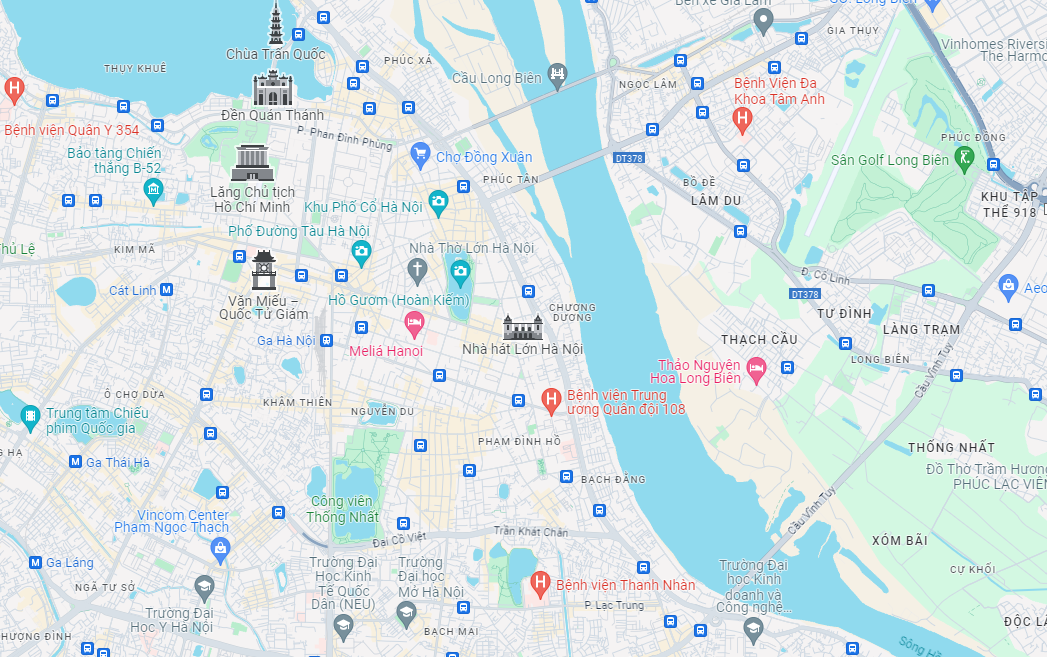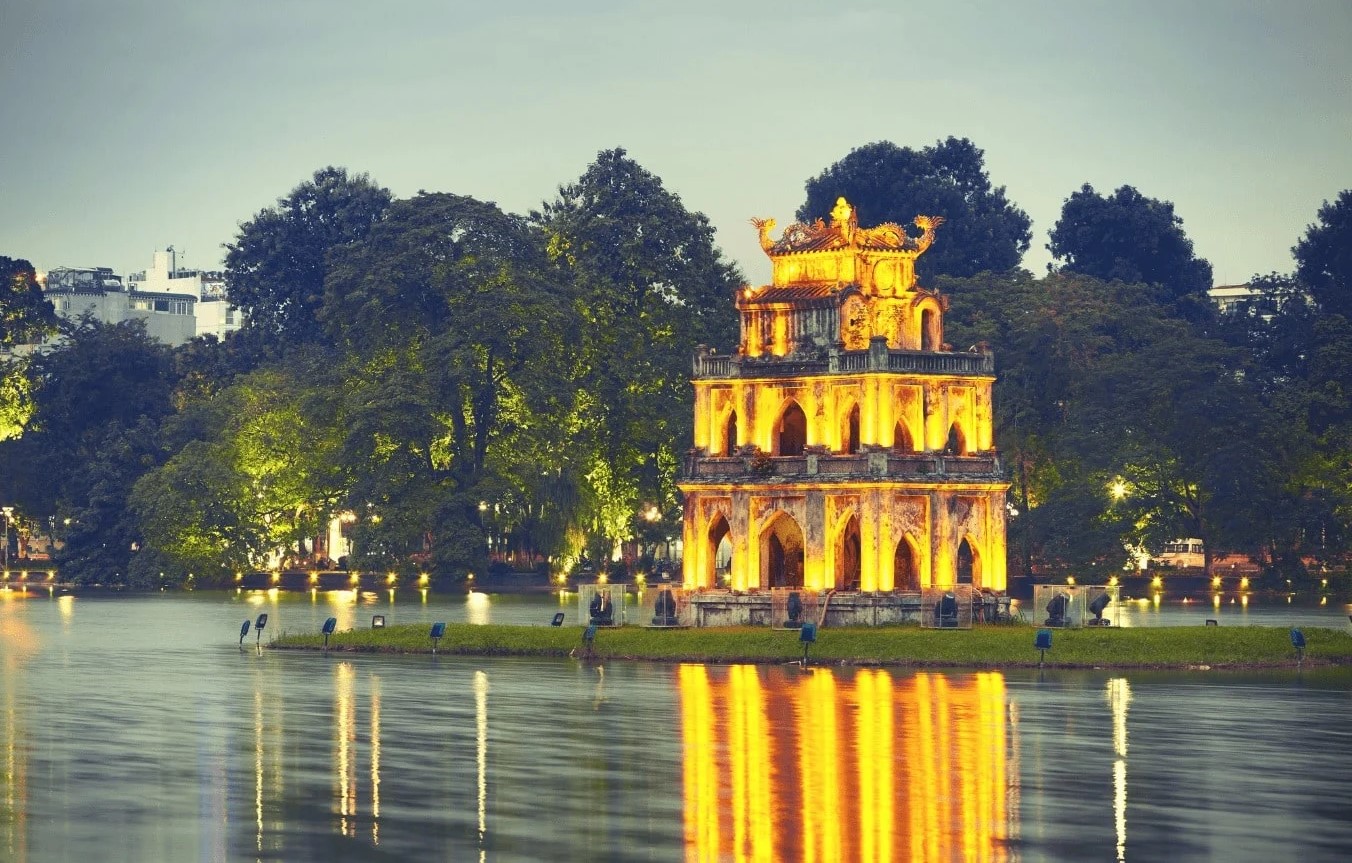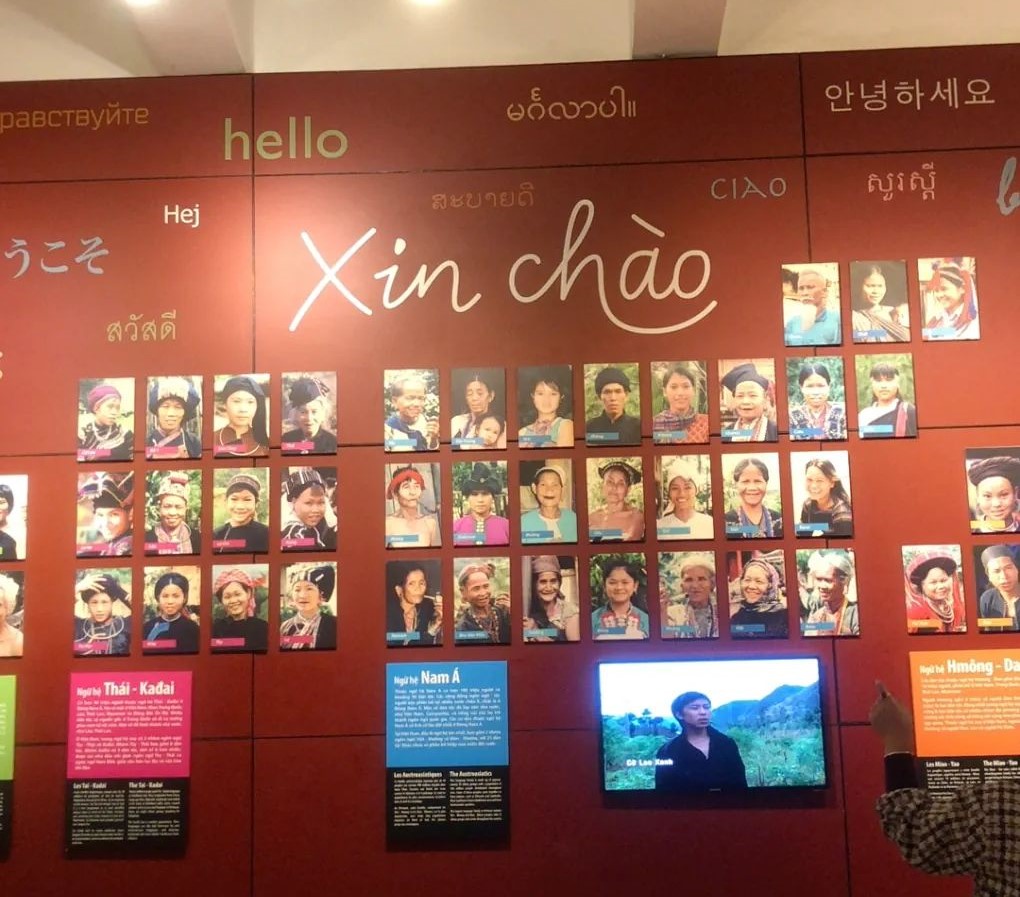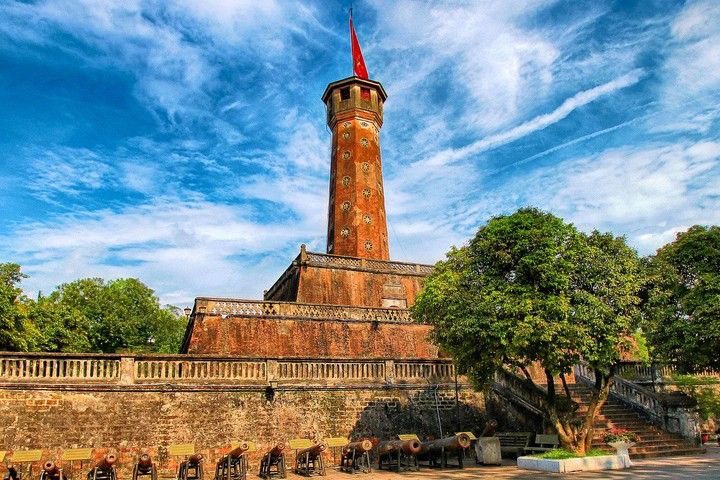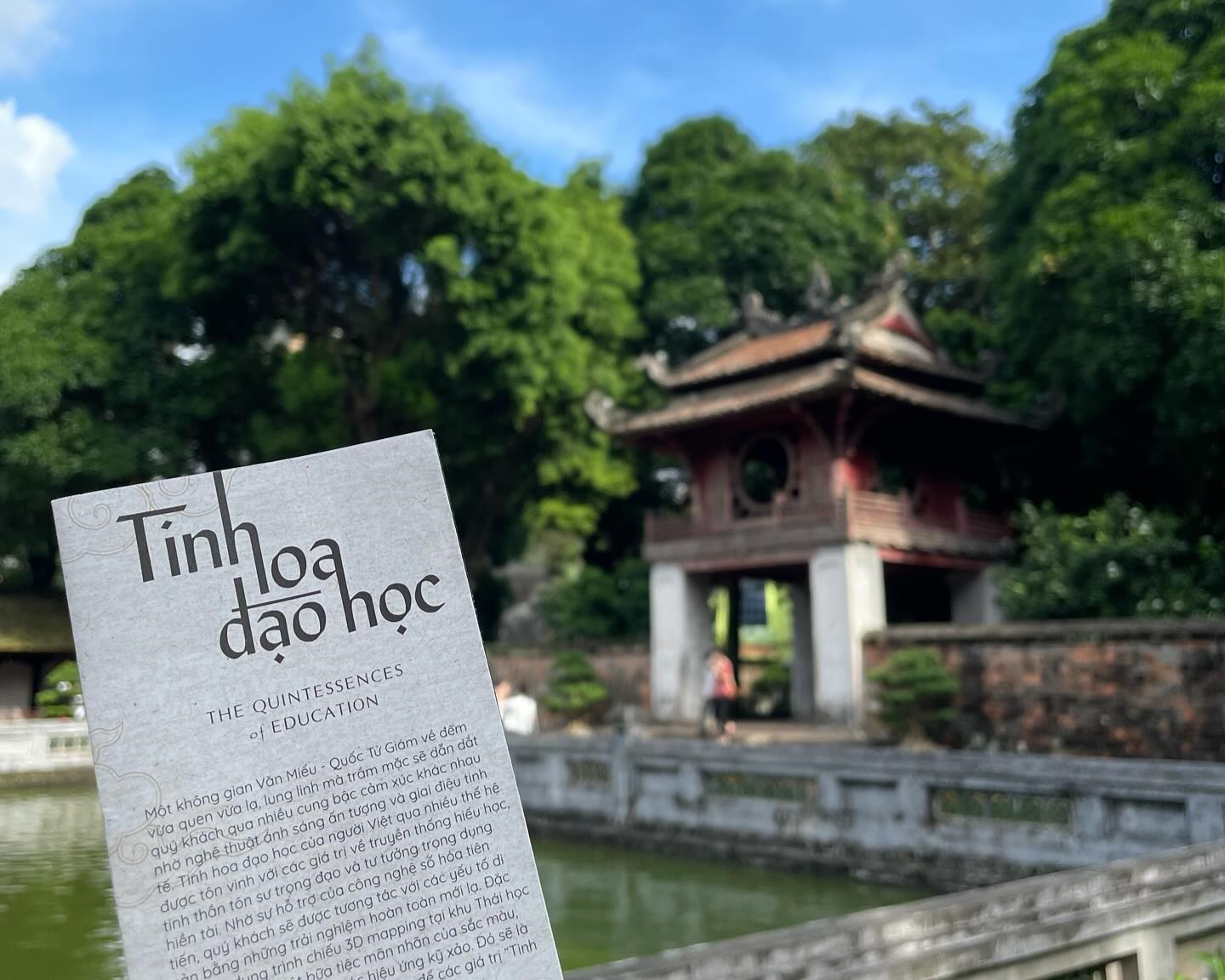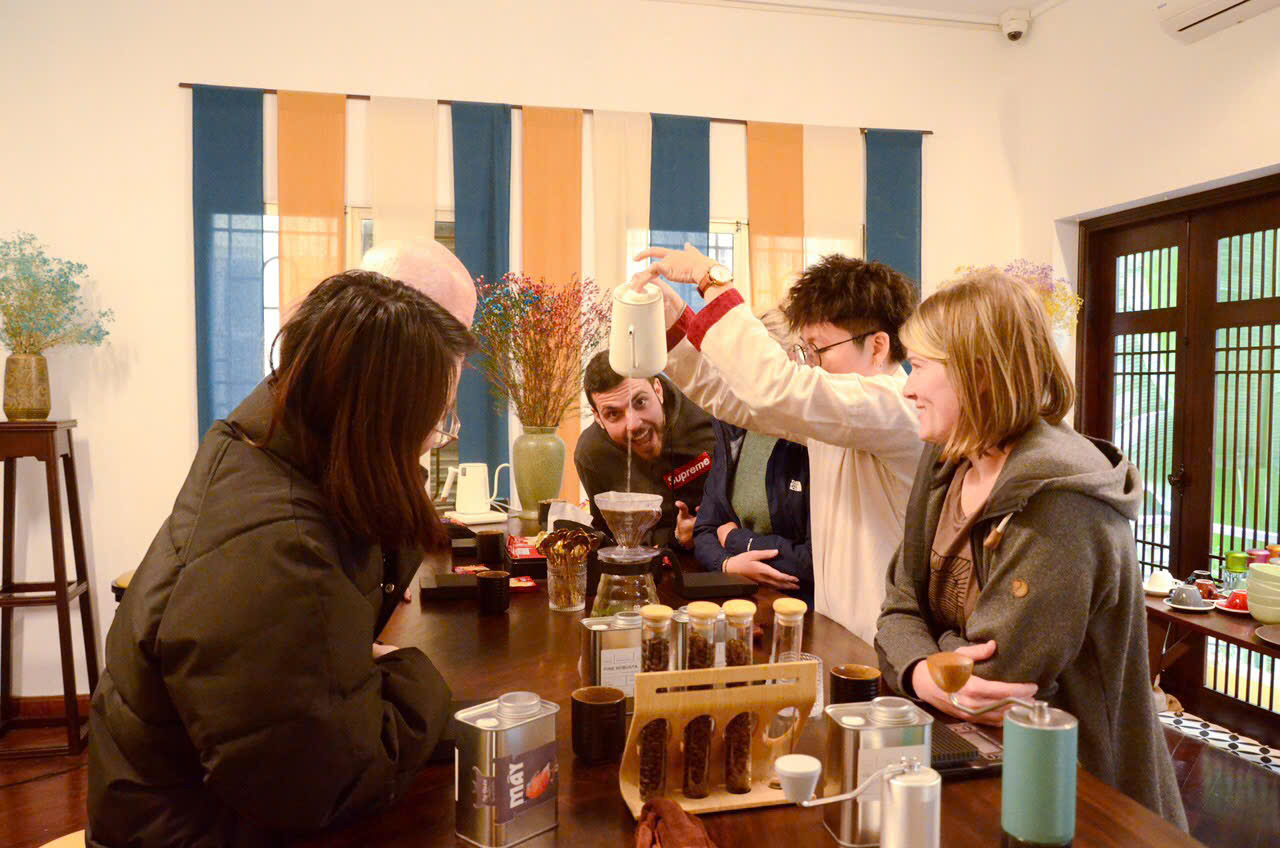Tour
Nestled along the historic Red River, Hanoi is a vibrant capital city that perfectly blends timeless charm, rich cultural heritage, and dynamic modern life. Known for its tree-lined boulevards, serene lakes, ancient temples, and bustling Old Quarter, Hanoi offers a unique experience for every traveler. Whether you’re seeking historical exploration, cultural immersion, or a taste of Vietnam’s iconic cuisine, Hanoi promises an unforgettable experience.
1. Where is Hanoi, Vietnam?
Hanoi is located in northern Vietnam, on the west bank of the Red River. The city is approximately 764 km north of Da Nang and 1,720 km north of Ho Chi Minh City by road (about 1,160 km as the crow flies). It serves as the political, economic, and cultural center of Vietnam, and is near famous destinations like Ha Long Bay (170 km to the east), Sapa (300 km to the northwest), and Ninh Binh (90 km to the south).
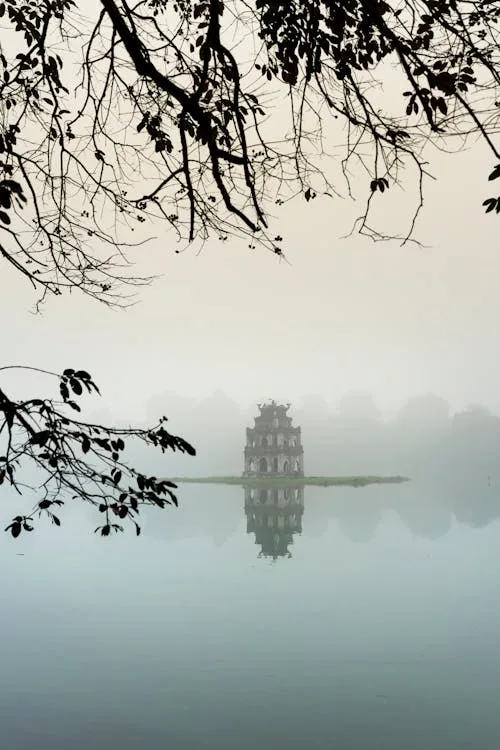
Hanoi, the thousand-year-old capital of Vietnam, is famous for its Hoan Kiem Lake and the lively Old Quarter. - Photo Source: Pexels
2. Best Time to Visit Hanoi: When Should You Go?
Hanoi is a year-round destination, but choosing the right time to visit depends on your travel preferences. The city has a humid subtropical climate with four distinct seasons: spring (February – April), summer (May – August), autumn (September – November), and winter (December – January).
Spring (February – April) – Season of Festivals & Pleasant Weather
Spring in Hanoi brings warm temperatures, light drizzle, and the blossoming of flowers and new foliage. This is also the season for many traditional festivals.
- Best months: March to April (pleasant temperatures, less rain)
- June to August: Peak summer season, can be hot and humid with occasional heavy rain
- Ideal for: Visiting temples and pagodas, enjoying the spring scenery, participating in festivals.
- Must-visit: Hoan Kiem Lake, Temple of Literature, Thang Long Imperial Citadel, traditional flower villages.
Summer (May – August) – Hot & Humid with Refreshing Rains
Summer in Hanoi is characterized by high temperatures and humidity, often with afternoon showers. However, the lush greenery is vibrant, and there are plenty of indoor activities to enjoy.
- Months: June to August (hottest, prepare for high humidity and occasional heavy rain)
- Ideal for: Exploring museums, enjoying indoor entertainment, savoring refreshing drinks and summer fruits.
- Suggested visits: Vietnam National Museum of History, Water Puppet Theater, air-conditioned cafes.
Autumn (September – November) – Hanoi's Most Beautiful Season
Autumn is widely considered the best time to visit Hanoi, with its mild temperatures, gentle sunshine, and romantic atmosphere. The fragrant scent of milk flowers (hoa sữa) fills the air.
- Best months: September to October (cool and dry, clear blue skies)
- Ideal for: Strolling through the Old Quarter, enjoying coffee by Hoan Kiem Lake, admiring the autumn foliage, taking photos.
- Must-visit: Old Quarter, West Lake, Phan Dinh Phung Street, numerous charming cafes.
Winter (December – January) – Cool & Dry Weather
Winter in Hanoi brings cooler temperatures and dry conditions. This is a good time to enjoy hearty Vietnamese cuisine and experience a different side of the city.
- Months: December to January (coldest, pack warm layers)
- Ideal for: Visiting historical sites, enjoying hot food like pho and hot pot, experiencing the quieter atmosphere.
- Suggested visits: Ho Chi Minh Mausoleum, Hoa Lo Prison, enjoying winter street food.
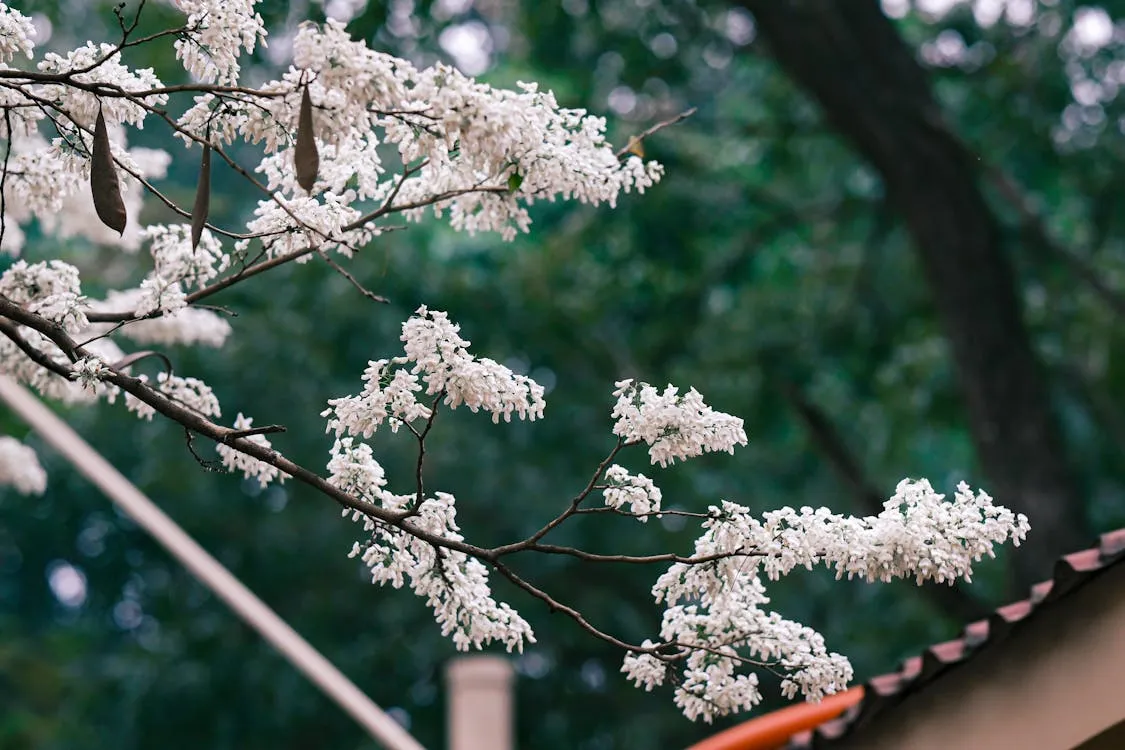
Whether it's the golden hues of autumn or the fresh blossoms of spring, each season brings a unique charm to this ancient capital. - Photo Source: Pexels
3. How Much Time Should I Spend in Hanoi?
The ideal amount of time to spend in Hanoi depends on your travel interests and schedule. Whether you're on a quick stopover or planning an extended vacation, the city offers a wealth of attractions and experiences. Here’s a guide to help you decide how many days to stay.
Recommendation
- 1 day: A brief overview of the city's main highlights
- 2 days: Explore key attractions and experience local culture
- 3 days: A well-rounded experience covering history, culture, and local life
- 4 days: A more in-depth exploration with opportunities for day trips
- 5 days or more: An immersive journey into Hanoi's culture and surrounding areas
1 Day in Hanoi – A Quick Overview
If you have limited time, you can still experience some of Hanoi's highlights in one day. Visit Hoan Kiem Lake, explore the Old Quarter, see the Water Puppet show, and enjoy a bowl of pho.
2 Days in Hanoi – A Balanced Trip
With two days in Hanoi, you can delve deeper into the city's top attractions, such as the Temple of Literature, Ho Chi Minh Mausoleum, and the Thang Long Imperial Citadel. You'll also have time to wander through the charming streets of the Old Quarter and enjoy the local cuisine.
3 Days in Hanoi – The Perfect Itinerary
A three-day stay allows you to explore Hanoi's key historical and cultural sites, experience local life, and perhaps take a short cyclo tour or enjoy a cooking class. You might also consider a half-day trip to a nearby craft village.
4 Days in Hanoi – The Ultimate Experience
Spending four days in Hanoi gives you the flexibility to explore more hidden gems, visit museums, and take a day trip to nearby attractions like the Perfume Pagoda or a traditional village.
5 Days in Hanoi – A Complete Experience
For a more relaxed and immersive journey, five days in Hanoi allows you to discover off-the-beaten-path experiences, enjoy a food tour, explore different neighborhoods, and potentially take a longer day trip to Ninh Binh (Tam Coc or Hoa Lu).
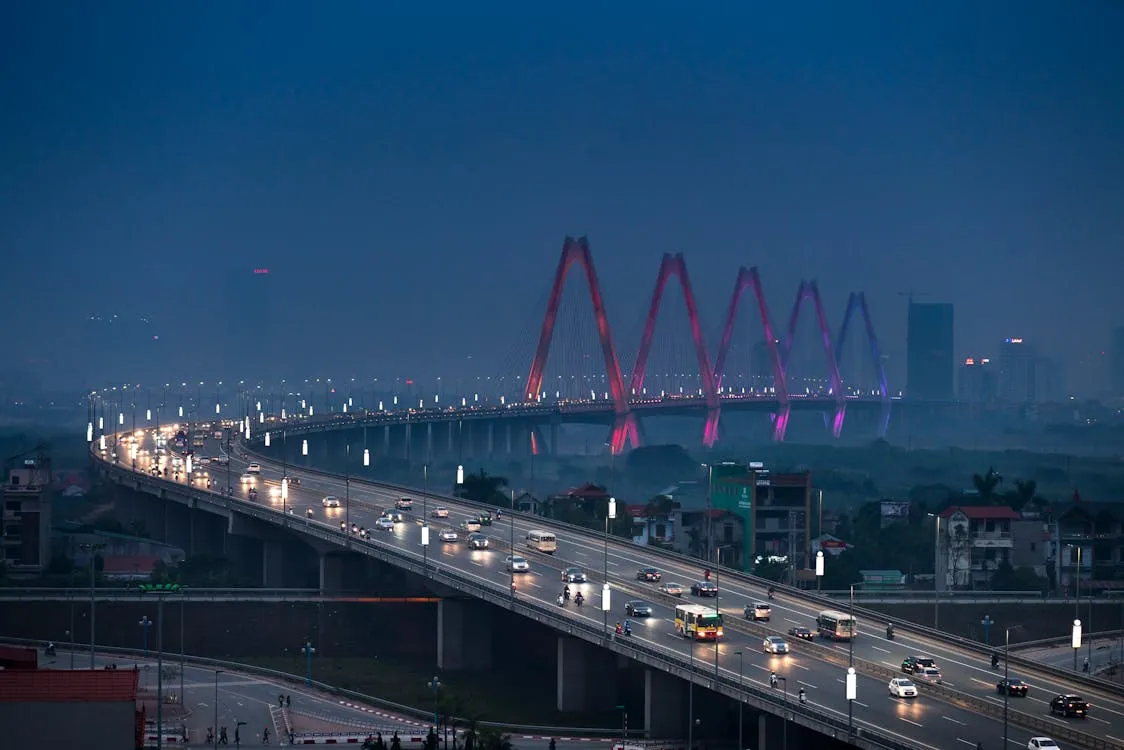
Hanoi boasts breathtaking landscapes, from its serene lakes and ancient architecture to the bustling streets of the Old Quarter. - Photo Source: Pexels
4. How to Get to Hanoi: Your Ultimate Travel Guide
Whether you're arriving from another major city in Vietnam or planning day trips to surrounding areas, Hanoi’s transportation network makes traveling relatively easy and convenient. Here’s everything you need to know about reaching and getting around this fascinating destination.
Flying to Hanoi
Noi Bai International Airport (HAN) is the primary gateway, serving both domestic and international flights. If you're traveling from Da Nang, flying is the fastest and most convenient option, with a flight duration of about 1 hour and 15 minutes. For details on available flights and travel tips, check how to get from Da Nang to Hanoi.
Once you land, getting to the city center is straightforward with various transport options, including taxis, ride-hailing apps, airport buses, and private transfers.
Traveling to Hanoi by Train
The Reunification Express railway connects Hanoi with major cities throughout Vietnam. While the journey from Da Nang is longer, it offers scenic views of the countryside. If you’re wondering about distances, check how far Da Nang is from Hanoi before booking your train ticket.
Getting to Hanoi by Bus
Long-distance sleeper buses operate between Hanoi and destinations such as Sapa, Ha Long Bay, and Ninh Binh. If you’re planning to visit Sapa, find out how to get from Hanoi to Sapa.
How to Travel Around Hanoi
Once you arrive, getting around the city is convenient. Options include taxis, motorbike rentals (for experienced riders), ride-hailing services (Grab), and cyclos (especially in the Old Quarter). Public buses are also available and are a budget-friendly option. For a detailed guide, visit how to travel around Hanoi.
Getting to Nearby Attractions
Hanoi serves as a great base for exploring some of Northern Vietnam’s most iconic destinations. Here’s how you can reach them:
| Destination | Distance from Hanoi |
Highlights |
Travel Information |
| Ha Long Bay | ~170 km |
UNESCO World Heritage Site, limestone karsts |
How to get to halong bay from hanoi |
| Sapa | ~300 km |
Hill tribes, rice terraces, Fansipan mountain |
How to get from hanoi to sapa |
| Ninh Binh | ~90 km |
Tam Coc, Hoa Lu, Trang An scenic complex |
Hanoi to ninh binh |
5. Top Attractions in Hanoi: 12 Must-Visit Places
With its rich history, vibrant culture, and charming atmosphere, Hanoi offers countless exciting experiences. Here are some of the best places you shouldn't miss.
Hoan Kiem Lake & Ngoc Son Temple
- Location: Hanoi city center
- Opening Hours: Temple: 7:00 AM – 6:00 PM
- Ticket Price: Temple: 30,000 VND/adult ($1.20)
The iconic heart of Hanoi, Hoan Kiem Lake is a picturesque body of water with the beautiful Ngoc Son Temple situated on a small island in the middle. Legend has it that a magical golden turtle helped Emperor Le Loi drive out the Ming Dynasty. The surrounding area is perfect for a leisurely stroll, especially in the early morning or late afternoon.
Old Quarter
- Location: North of Hoan Kiem Lake
- Opening Hours: Always open
- Ticket Price: Free (some specific houses may have entrance fees)
A maze of narrow, bustling streets, the Old Quarter is the historical and commercial hub of Hanoi. Each street was traditionally dedicated to a specific trade, and while some of this specialization has faded, the area still retains its unique charm. Explore ancient houses, browse shops, sample street food, and soak in the vibrant atmosphere.
Temple of Literature & Imperial Academy (Van Mieu - Quoc Tu Giam)
- Location: Dong Da District
- Opening Hours: 8:00 AM – 5:00 PM
- Ticket Price: 70,000 VND/adult ($2.80)
Vietnam’s first university, the Temple of Literature is a beautiful complex of courtyards, gardens, and well-preserved architecture dating back to the 11th century. It's a significant historical and cultural site that offers insights into Vietnam's educational past.
Ho Chi Minh Mausoleum & Museum
- Location: Ba Dinh Square
- Opening Hours: Vary seasonally, usually mornings only (check in advance)
- Ticket Price: Mausoleum: Free (modest dress required); Museum: 40,000 VND/adult ($1.60)
A significant landmark for Vietnamese people, the Ho Chi Minh Mausoleum is where the embalmed body of Vietnam's first president is preserved. Nearby, the Ho Chi Minh Museum offers a comprehensive look at his life and revolutionary activities.
Thang Long Imperial Citadel
- Location: Ba Dinh District
- Opening Hours: 8:00 AM – 5:00 PM
- Ticket Price: 30,000 VND/adult ($1.20)
A UNESCO World Heritage Site, the Thang Long Imperial Citadel was the center of regional political power for almost thirteen centuries. Explore the remaining structures and archaeological sites that tell the story of Vietnam's long history.
West Lake (Ho Tay) & Tran Quoc Pagoda
- Location: Tay Ho District
- Opening Hours: Pagoda: 7:30 AM – 11:30 AM & 1:30 PM – 5:30 PM
- Ticket Price: Free
The largest lake in Hanoi, West Lake is a popular spot for recreation and relaxation. Take a stroll along its shores, rent a paddleboat, or visit the ancient Tran Quoc Pagoda, one of the oldest pagodas in Hanoi, located on a small peninsula.
Water Puppet Theater
- Location: Various locations, most popular near Hoan Kiem Lake
- Show Times: Several shows daily (check schedule)
- Ticket Price: Around 100,000 – 200,000 VND ($4 – $8)
A unique Vietnamese art form, water puppetry is a captivating performance where puppets dance and enact stories on a water stage. It's a must-see cultural experience in Hanoi.
Hoa Lo Prison (Hanoi Hilton)
- Location: Hoan Kiem District
- Opening Hours: 8:00 AM – 5:00 PM
- Ticket Price: 30,000 VND/adult ($1.20)
Originally built by the French colonizers to house Vietnamese political prisoners, Hoa Lo Prison was later used to hold American prisoners of war during the Vietnam War. Today, it serves as a museum that recounts the history of the prison and the struggles for Vietnamese independence.
Dong Xuan Market
- Location: Old Quarter
- Opening Hours: Primarily wholesale in the early morning, retail during the day
- Ticket Price: Free entry (prices vary by product)
Hanoi’s largest indoor market, Dong Xuan Market is a bustling hub of commerce where you can find everything from fresh produce and seafood to clothing, household goods, and souvenirs. It's a great place to experience the local trading atmosphere.
Vietnam Museum of Ethnology
- Location: Cau Giay District
- Opening Hours: 8:30 AM – 5:30 PM (closed Mondays)
- Ticket Price: 40,000 VND/adult ($1.60)
This excellent museum offers a fascinating insight into the diverse ethnic groups of Vietnam, showcasing their traditional costumes, houses, tools, and cultural practices. The outdoor area features authentic replicas of ethnic minority houses.
St. Joseph's Cathedral
- Location: Hoan Kiem District
- Opening Hours: Varies for services, open for visitors during certain times
- Ticket Price: Free
A beautiful neo-Gothic cathedral built by the French in the late 19th century, St. Joseph's Cathedral is a prominent landmark in Hanoi. Its stunning architecture and peaceful atmosphere make it worth a visit.
Train Street
- Location: Between Le Duan and Kham Thien streets (check current access restrictions)
- Opening Hours: Best experienced when trains are scheduled (check timings)
- Ticket Price: Free (often requires purchasing a drink at a local cafe)
A unique and increasingly popular spot, Train Street is a narrow residential area where train tracks run just inches from people's homes. While visiting requires caution and awareness of train schedules, it offers a memorable and photogenic experience.
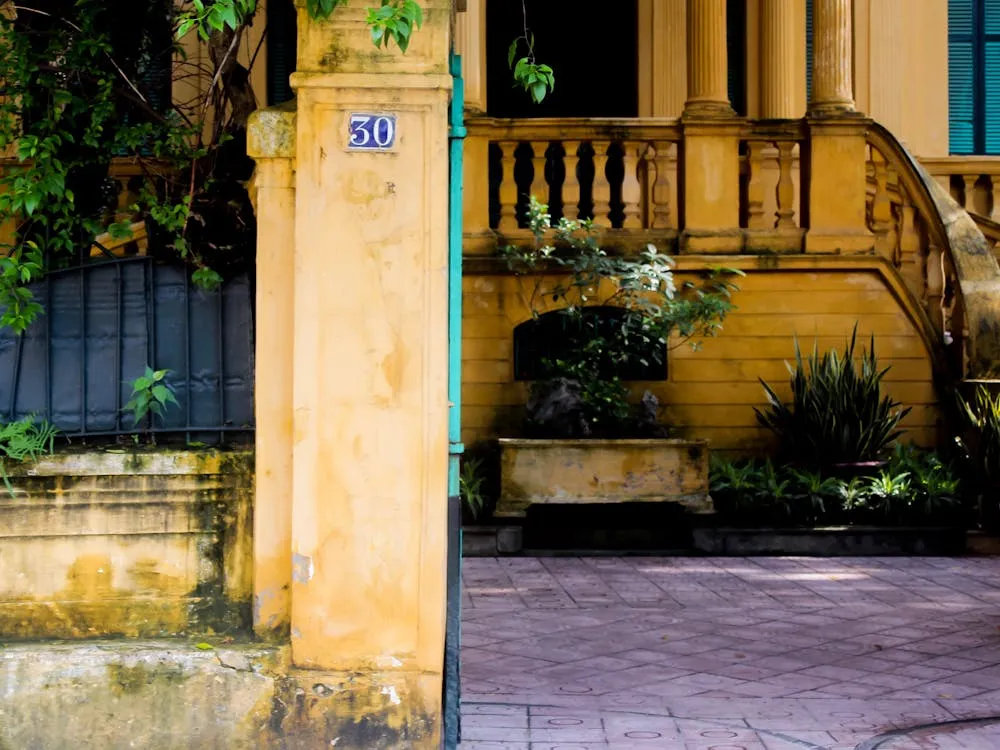
With its timeless charm, rich cultural heritage, and vibrant atmosphere, Hanoi offers countless exciting experiences. - Photo Source: Pexels
6. What to Eat in Hanoi?
Hanoi is a culinary paradise, renowned for its flavorful and diverse cuisine, from iconic national dishes to delicious street food. Whether you're dining in a traditional restaurant or savoring a meal from a street vendor, Hanoi's culinary scene will tantalize your taste buds. Here are some must-try dishes.
Pho (Noodle Soup)
Price: 30,000 – 60,000 VND ($1.20 – $2.50)
Considered Vietnam's national dish, Pho is a fragrant noodle soup typically made with a flavorful broth, rice noodles, herbs, and thinly sliced beef (Pho Bo) or chicken (Pho Ga). Hanoi is the birthplace of Pho, and you'll find countless stalls and restaurants serving this iconic dish.
Bun Cha (Grilled Pork with Vermicelli)
Price: 30,000 – 50,000 VND ($1.20 – $2)
Bun Cha features grilled marinated pork patties and slices of pork belly served in a flavorful dipping sauce with fresh herbs and a side of vermicelli noodles. It's a Hanoi specialty and a must-try for any visitor.
Banh Mi (Vietnamese Baguette Sandwich)
Price: 20,000 – 40,000 VND ($0.80 – $1.60)
While Banh Mi is popular throughout Vietnam, Hanoi offers its own delicious variations. A crispy baguette filled with various ingredients like pate, cold cuts, pickled vegetables, and chili sauce, Banh Mi is a perfect quick and tasty meal.
![]()
Hanoi is a food lover’s paradise, offering iconic dishes like Pho (fragrant noodle soup), Bun Cha (grilled pork with vermicelli), and flavorful Banh Mi. - Photo Source: Pexels
Cha Ca La Vong (Grilled Fish with Dill and Turmeric)
Price: 150,000 – 250,000 VND per serving ($6 – $10)
A unique Hanoi specialty, Cha Ca La Vong consists of marinated fish fillets grilled with turmeric and dill, served sizzling at your table with vermicelli noodles, peanuts, shrimp paste, and fresh herbs.
Xoi Xeo (Savory Sticky Rice)
Price: 15,000 – 30,000 VND ($0.60 – $1.20)
Xoi Xeo is a popular savory sticky rice dish topped with ground mung beans, crispy fried onions, and sometimes shredded pork floss. It's a hearty and flavorful breakfast or snack.
Banh Cuon (Steamed Rice Rolls)
Price: 25,000 – 40,000 VND ($1 – $1.60)
Banh Cuon are delicate steamed rice flour rolls filled with seasoned ground pork and wood ear mushrooms. They are typically served with fried shallots, fresh herbs, and a light dipping sauce (nuoc cham).
Com (Young Green Rice)
Price: Varies seasonally, around 20,000 – 40,000 VND per small packet ($0.80 – $1.60)
Com is a seasonal delicacy made from young, unripe sticky rice grains. It has a subtly sweet and nutty flavor and is often eaten plain or used in desserts and snacks. Vong Village is particularly famous for its Com.
Bun Dau Mam Tom (Vermicelli with Fried Tofu and Shrimp Paste)
Price: 30,000 – 50,000 VND ($1.20 – $2)
A bold and pungent dish, Bun Dau Mam Tom features fried tofu, boiled pork, fried spring rolls, and fresh herbs served with vermicelli noodles and a fermented shrimp paste dipping sauce (mam tom). It's an acquired taste but a beloved Hanoi street food.
Nom (Vietnamese Salad)
Price: 20,000 – 40,000 VND ($0.80 – $1.60)
Hanoi offers a variety of refreshing salads (Nom) made with shredded green papaya, carrots, cucumber, or other vegetables, mixed with herbs, peanuts, and a tangy dressing. They often accompany main dishes or are enjoyed as light snacks.
Ca Phe Trung (Egg Coffee)
Price: 30,000 – 50,000 VND ($1.20 – $2)
A unique Hanoi specialty, Egg Coffee is a rich and creamy drink made with strong Vietnamese coffee topped with a whisked egg yolk cream. It's a must-try for coffee lovers.
From bustling street food stalls to cozy restaurants, Hanoi offers a culinary adventure around every corner. If you're wondering where to eat in Hanoi, the Old Quarter is a great place to start your gastronomic exploration!
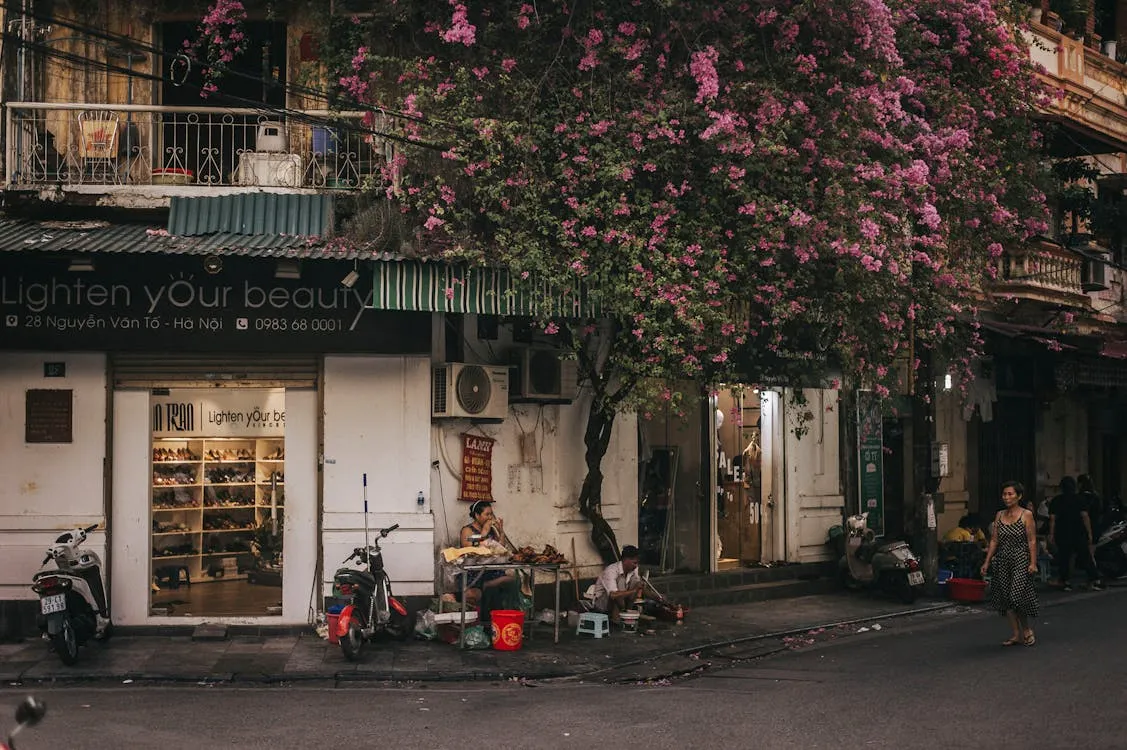
The city's vibrant street food scene is a must-try for any visitor. - Photo Source: Pexels
7. Where to Stay in Hanoi?
Whether you're looking for budget-friendly hostels, charming boutique hotels, or luxurious stays, Hanoi offers a wide range of accommodation options to suit every traveler's needs and preferences. This guide on where to stay in Hanoi can help you find the best choice for your trip.
Old Quarter – Central & Lively
Staying in the Old Quarter puts you right in the heart of Hanoi's action. You'll be within walking distance of many major attractions, countless restaurants and cafes, and vibrant nightlife. This area offers a mix of budget hostels, boutique hotels, and traditional guesthouses.
Hoan Kiem Lake Area – Scenic & Convenient
Hotels around Hoan Kiem Lake offer stunning views and easy access to the lake, Ngoc Son Temple, and the surrounding pedestrian streets. This area is slightly more upscale than the Old Quarter but still offers a range of options
French Quarter – Elegant & Historic
Known for its wide boulevards, colonial-era architecture, and quieter atmosphere, the French Quarter offers a more refined stay. You'll find elegant hotels, art galleries, and upscale restaurants in this district.
West Lake Area – Relaxing & Scenic
If you prefer a more tranquil setting away from the hustle and bustle, consider staying near West Lake. This area offers a mix of serviced apartments, boutique hotels, and villas with beautiful lake views.
Ba Dinh District – Political & Cultural Hub
Home to many government buildings, museums, and historical sites like the Ho Chi Minh Mausoleum and the Temple of Literature, Ba Dinh District offers a central location with a more formal atmosphere.
Budget Hostels – Affordable & Social
Hanoi has a thriving backpacker scene, and you'll find numerous budget-friendly hostels, particularly in the Old Quarter. These offer dormitory-style rooms and social spaces, perfect for meeting fellow travelers.
Boutique Hotels – Charming & Unique
Hanoi boasts many charming boutique hotels, often located in beautifully restored traditional buildings in the Old Quarter or the French Quarter. These offer a more personalized and authentic experience.
Luxury Hotels – Comfort & Elegance
For those seeking a luxurious stay, Hanoi has several high-end hotels offering world-class amenities, fine dining, and exceptional service, often located in the French Quarter or near Hoan Kiem Lake.
8. Travel Tips for Visiting Hanoi
Hanoi is a captivating city with a rich history and vibrant culture. To make the most of your trip, here are some essential travel tips to help you navigate the city like a local.
Weather & What to Wear
Hanoi experiences four distinct seasons, so pack accordingly. Lightweight and breathable clothing is suitable for spring and summer, while warmer layers are necessary for autumn and winter. Be prepared for rain at any time of year, especially during the summer months.
Currency & Money Exchange
Vietnam’s official currency is the Vietnamese Dong (VND). While some larger establishments may accept US dollars, it's best to use local currency for most transactions, especially in markets and smaller shops. ATMs are widely available, and you can exchange currency at banks and authorized exchange bureaus.
Getting Around the City
Hanoi offers various transportation options. Taxis and ride-hailing apps like Grab are convenient for short to medium distances. Motorbike rentals are available but recommended only for experienced riders comfortable with Hanoi's traffic. Cyclos offer a leisurely way to explore the Old Quarter. Public buses are a budget-friendly option for longer distances. Walking is a great way to discover the Old Quarter and the areas around Hoan Kiem Lake.
Shopping & Souvenirs
Hanoi is a shopper's paradise, offering everything from traditional handicrafts and silk products to lacquerware, ceramics, and tea. The Old Quarter is filled with shops selling souvenirs, while Dong Xuan Market is great for wholesale and a wide variety of goods. Haggling is common in markets and smaller shops.
Local Etiquette & Safety
- Dress modestly when visiting temples and pagodas, covering your shoulders and knees.
- Remove your shoes before entering someone’s home or some religious sites.
- Bargaining is expected in markets, but do so politely and with a smile.
- Be aware of your belongings, especially in crowded areas.
- Tap water is not safe to drink; opt for bottled or filtered water.
- Be cautious of traffic, especially when crossing the street.
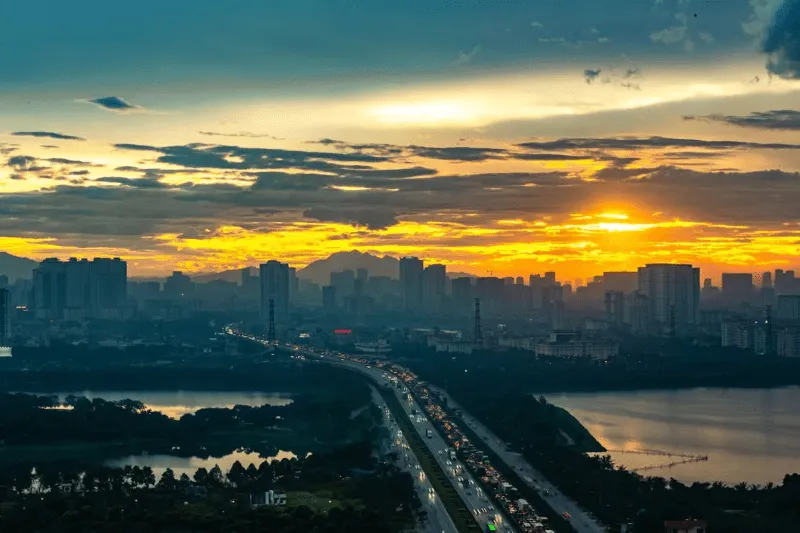
Hanoi's timeless charm, with its ancient streets and serene lakes, offers a unique travel experience. - Photo Source: Pexels
9. Estimated Travel Costs in Hanoi
Hanoi offers a range of travel experiences to suit different budgets. Below is a detailed breakdown of estimated costs for various aspects of your trip.
| Category | Budget Traveler | Mid-Range Traveler |
Luxury Traveler |
| Accommodation |
100,000 – 300,000 VND ($4 – $12) |
400,000 – 1,200,000 VND ($16 – $50) | 1,500,000+ VND ($60+) |
| Transportation |
30,000 – 100,000 VND ($1.20 – $4) |
100,000 – 300,000 VND ($4 – $12) | 400,000+ VND ($16+) |
| Food & Dining |
50,000 – 150,000 VND ($2 – $6) |
200,000 – 500,000 VND ($8 – $20) | 600,000+ VND ($25+) |
| Attractions & Activities |
Free – 100,000 VND ($0 – $4) |
150,000 – 400,000 VND ($6 – $16) | 500,000+ VND ($20+) |
| Shopping & Souvenirs |
50,000 – 200,000 VND ($2 – $8) |
200,000 – 500,000 VND ($8 – $20) | 600,000+ VND ($25+) |
| Wellness & Other Expenses |
50,000 – 150,000 VND ($2 – $6) |
150,000 – 400,000 VND ($6 – $16) | 500,000+ VND ($20+) |
|
Total Estimated Budget (Per Day) |
300,000 – 900,000 VND ($12 – $36) |
1,200,000 – 2,900,000 VND ($48 – $116) | 3,600,000+ VND ($144+) |
With this cost breakdown, you can easily estimate your travel budget in Hanoi. Whether you're a budget backpacker, a mid-range explorer, or a luxury seeker, Hanoi offers incredible experiences at every price point.
So, Hanoi is a destination that offers a perfect blend of history, culture, and culinary delights. Whether you’re planning a Hanoi city tour, looking to explore ancient traditions, or simply seeking a captivating urban adventure, this city has something to enchant every traveler.
Start planning your trip today and discover the timeless beauty of Hanoi!
|
Joytime - Your Vietnam Journey's Servant Expert Follow us for travel tips, local insights, and exclusive offers:
|





